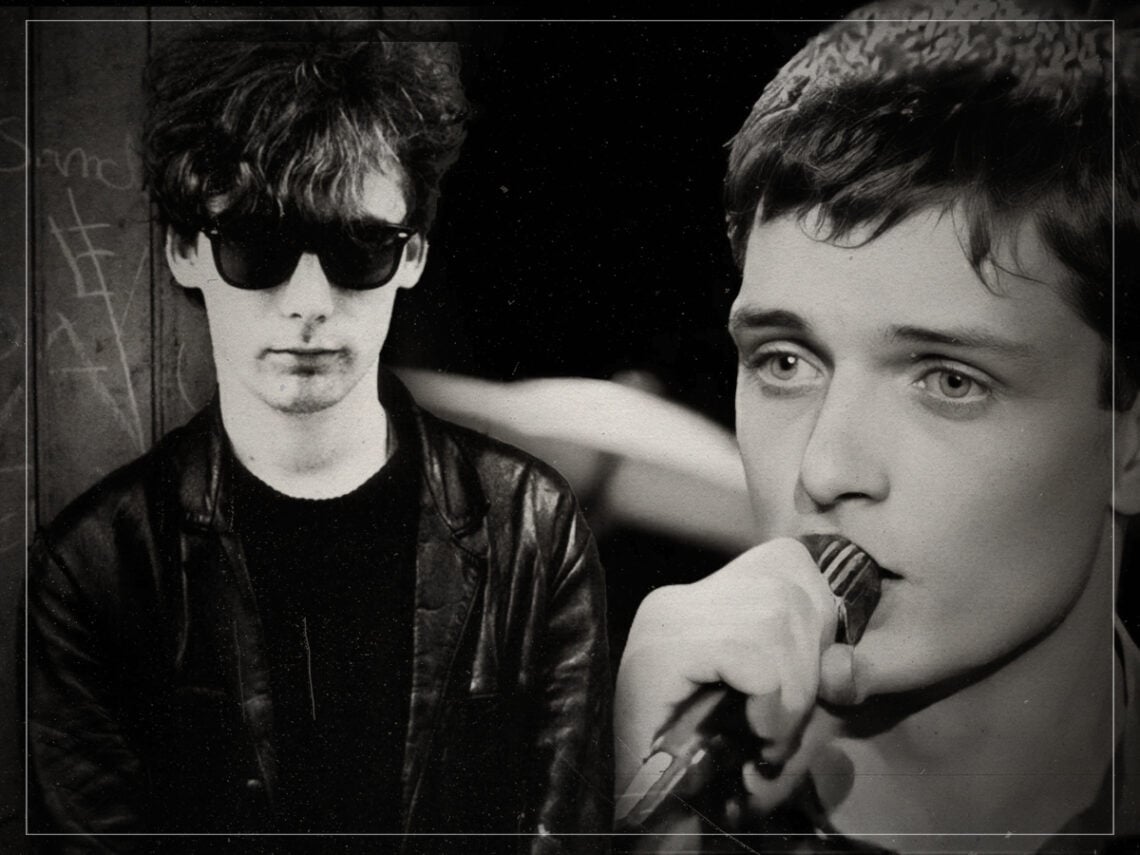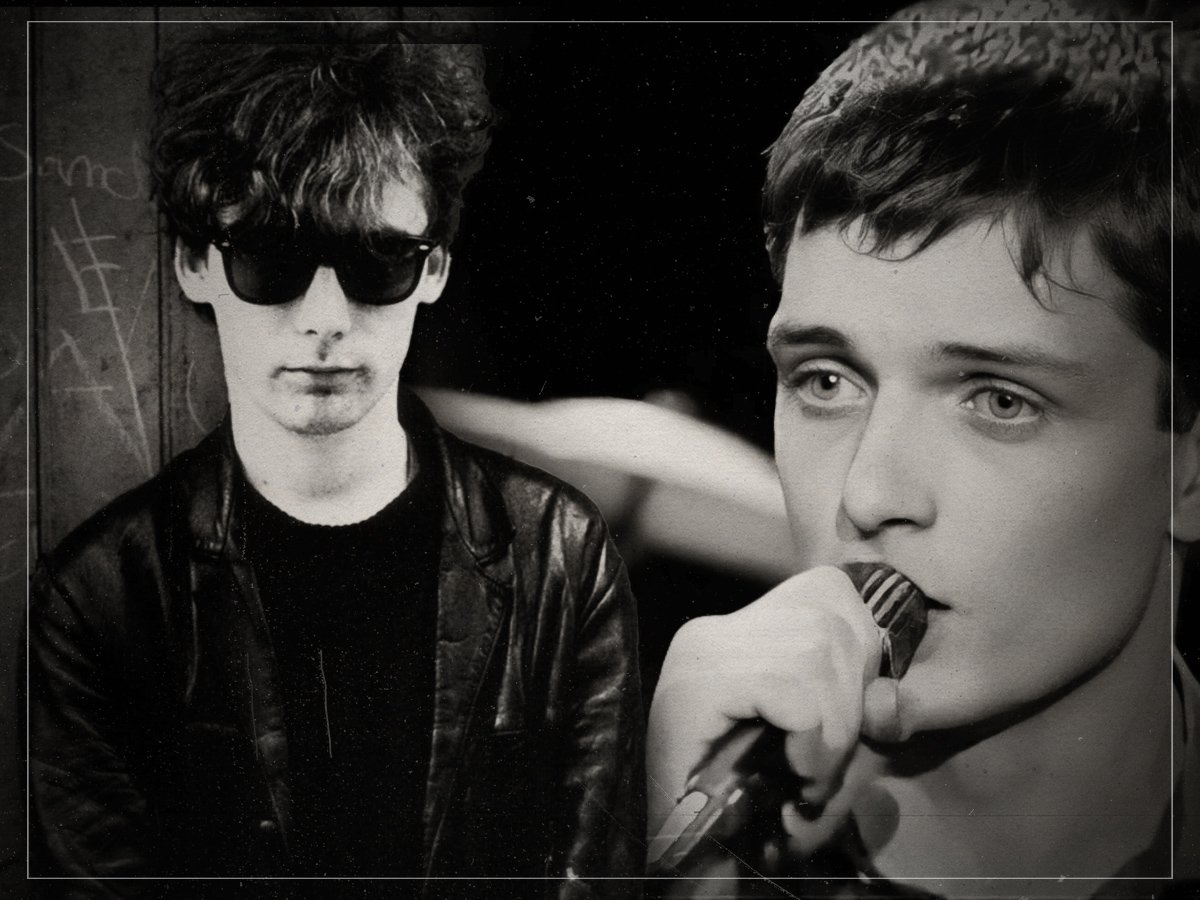
(Credits: Far Out / The Jesus and Mary Chain / Jim Reid / YouTube Still)
Sun 19 October 2025 12:00, UK
Archetypes of post-punk mastery and the saviours of long overcoat salesmen everywhere, Joy Division were a pretty miraculous band when they sprang up from the grey industrialism of Manchester back in the 1970s. With little in the way of musical training or experience, the group managed to revolutionise the entire landscape of grassroots music, inspiring the likes of Jim Reid in the process.
You could toil away in a recording studio for decades, and you would still struggle to land upon the same distinctive sound as Joy Division. After all, a core part of its appeal was its sense of punk spontaneity and rough-around-the-edges ethos. Sure, Martin Hannett essentially moulded Unknown Pleasures in his own image, but the band themselves were still creating tracks which sounded wholly unlike anything that had come before – largely because nobody was around to show them the ‘proper’ way of doing things, and Factory Records boss Tony Wilson wasn’t about to correct that.
That sense of fearless originality might have arisen from a simple lack of experience, but that didn’t stop it from inspiring the next generation of untrained and ruthlessly DIY artists. There is scarcely an indie or post-punk outfit on the planet that does not owe something to the pioneering sounds of Ian Curtis and the gang, but some influences are more obvious than others. Back in the 1980s, for instance, it was clear to see that a band like The Jesus and Mary Chain would not exist without an album like Unknown Pleasures.
Hundreds of miles from the drizzly industrialism of Manchester, the drizzly industrialism of Glasgow spurred on the formation of The Jesus and Mary Chain back in 1983, centred around a fraternal core of Jim and William Reid, who both carried forward the inherent manifesto that Joy Division had laid down a few years prior.
With their endearingly abrasive sound, the Chain paved the way for the likes of shoegaze and noise rock, which arrived years later, and they almost single-handedly put Alan McGee’s Creation Records on the map, thus spawning Primal Scream and, eventually, Oasis. In other words, Jim Reid’s outfit has been utterly essential in the history and development of independent music, but it might never have happened without the influence of Joy Division.
Recalling the moment when he first became exposed to revolutionary sounds of Manchester’s finest, during an interview with The Quietus. “The first time we saw them was on this programme Something Else, a teenage youth program or something, which was generally pretty shite, but they had occasionally good bands on it,” Reid remembered, placing this story around the band’s September 1979 appearance on the BBC.
“We’d never heard Joy Division, and we watched that performance on that TV show, and it was like, fuck. It was like what I imagine if you’re a kid and you see The Doors for the first time or something. We were just knocked out.” Not long after that life-changing televisual event, Reid got the chance to see the band perform live. “We went to see them shortly after that at the Glasgow Apollo. It was them and the Buzzcocks but everybody, and I’m talking about everybody, was there to see Joy Division.”
Although Joy Division never commanded a colossal live following during their short tenure, particularly not outside their native Manchester, the Jesus and Mary Chain songwriter was pretty astonished by their performance. “Fucking jaws dropped when they came on,” he shared. “And the poor Buzzcocks were great but they couldn’t follow it. It was so intense.”
Four years later, The Jesus and Mary Chain came to life and, barring one particularly toe-curling interview on Belgian TV when Reid claimed to hate Joy Division – apparently in an effort to annoy the interviewer – the group always held a candle for their Mancunian counterparts.
Their respective sounds might have been worlds apart, ‘Love Will Tear Us Apart’ bearing little resemblance to the ear-rattling distortion of ‘Upside Down’, but the two groups always shared that trailblazing, subversive, and unwaveringly original ethos throughout.
Related Topics

